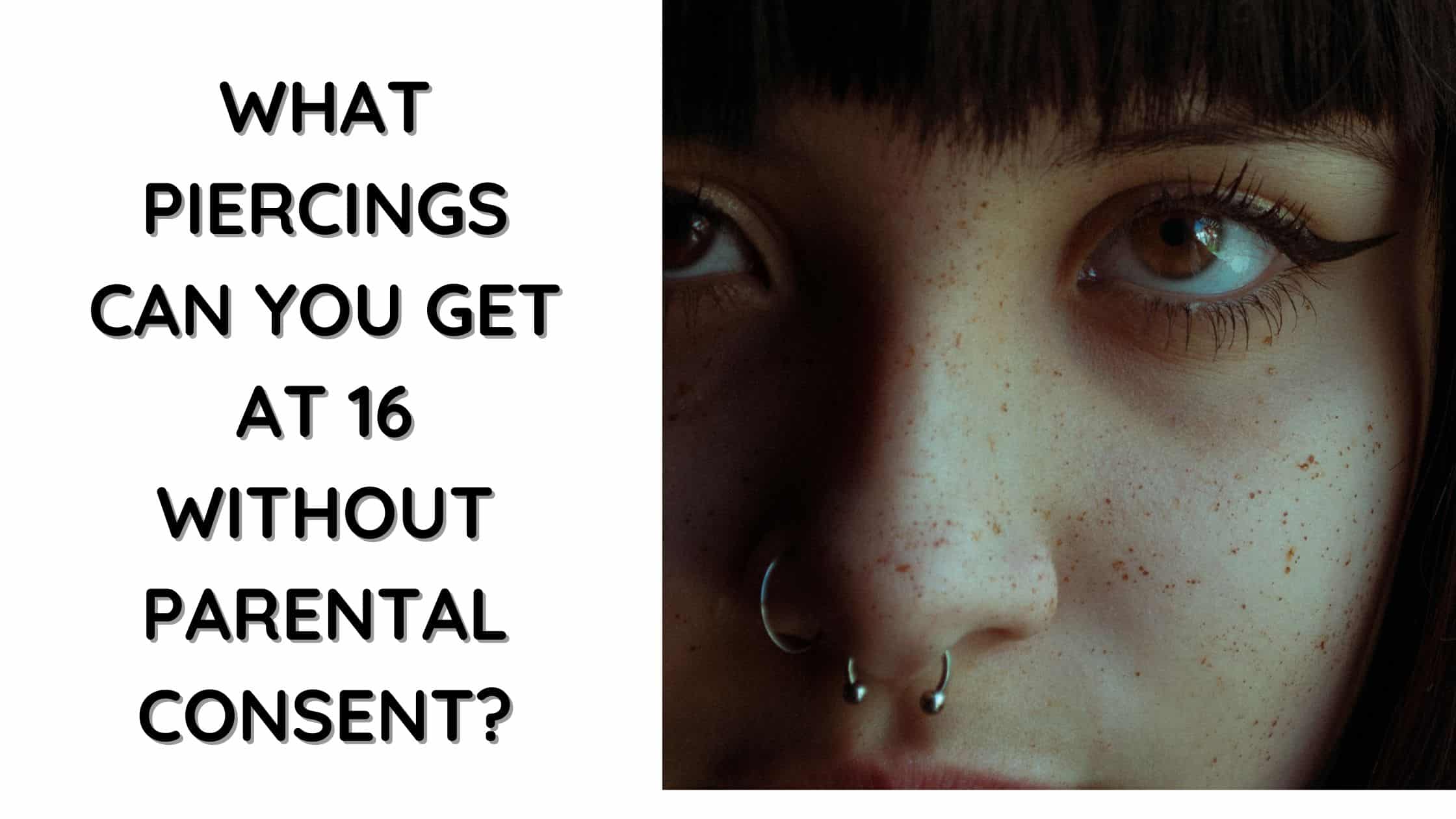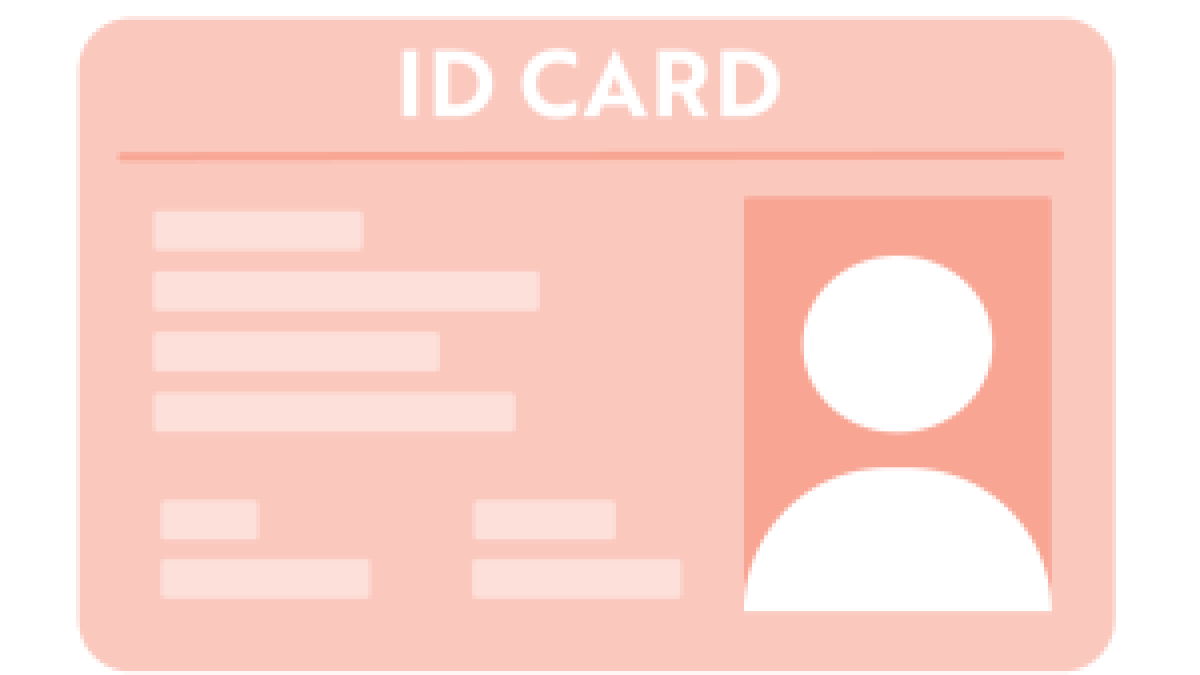Getting your first piercing can be an exciting rite of passage for a teenager. However, rules around body piercings for those under 18 vary widely depending on where you live. We’ll explore what types of piercings a 16-year-old can get without needing permission from their parents.

Ear Piercings
The most common piercing for teenagers is ear piercings. Getting your earlobes pierced is widely considered safe and acceptable for those 16 and up without parental approval needed. Nearly all piercing shops and tattoo parlors will pierce earlobes on 16-year-olds as long as they have valid ID showing proof of age.
Types of ear piercings a 16-year-old can easily get on their own include:
- Earlobe piercings
- Cartilage piercings like the helix, tragus, or upper ear
- Multiple piercings in one or both ears
While rules vary by region, most piercing shops will also perform more complex or unconventional ear piercings like industrials, daiths, or orbital piercings on 16-year-olds without requiring parental consent forms.
Nose Piercings
After ear piercings, nose piercings are the next most popular facial piercing. Regulations allow 16-year-olds to get a standard nostril piercing in most areas without parental approval needed. However, some states or countries may have stricter rules requiring consent for those under 18.
Types of nose piercings usually allowed at 16 without parental permission include:
- The nostril
- High nostril
- Septum (area between nostrils)
More complex nose piercings like bridges or double or triple nostril piercings may require ID showing 18+ even if you are 16 in some regions. Check your local laws.
Oral Piercings
Oral piercings like lip, tongue, smiley, or cheek piercings are controversial for those under 18. Many piercing shops have policies not to perform these piercings on anyone under 18 even with parental approval due to health risks and damage to teeth and gums that can occur.
However, some shops may make exceptions depending on local regulations. Common oral piercings a 16-year-old may be able get without parental consent include:
- Labret
- Lip ring
- Smiley (web piercing)
- Tongue piercing
Laws change frequently though, so call ahead and check if you will need parental signature forms for any oral piercing under 18.
Navel Piercings
Navel or “belly button” piercings remain a right of passage for many older teens. However, some states require parental approval for this piercing if under 18 since it can be seen as more sexually provocative.
Recommendations often suggest waiting until 18 for navel piercings when rules become more relaxed. However, some shops will still perform this piercing at 16 depending no local regulations with just the teen’s ID showing proof of age.
Other Body Piercings
While ear, nose, and some oral piercings make up the majority sought by older teens, other body piercings may also be allowed at 16 without parental consent depending on your region. These can include:
- Eyebrow
- Surface piercings (hip, wrist, etc)
- Nipple
However, many reputable studios have age minimums of 18+ for nipple, genital, or explicit body piercings even where not legally required. Rules and practice vary widely on more intimate piercings for those under 18.
Picking a Reputable Studio
If getting a piercing under 18 without parental approval, it’s vital to pick a piercing and tattoo studio with proper safety standards and practices. Warning signs of an unsafe shop include:
- Willingness to pierce minors without ID/consent verification
- Unsanitary conditions or tools
- Heavy pressure to get a piercing you aren’t comfortable with
- No medical or liability paperwork
Quality studios will have autoclave sterilization, fresh needles, thorough paperwork, and piercers properly trained in safety standards and age verification. Getting a piercing may be alluring for self-expression, but protecting your health is still a priority.
Being Informed on Aftercare
While a 16-year-old can get certain piercings without parental approval in many areas, remembering to provide proper aftercare is still essential. Teens will need to learn how to:
- Clean the piercing site properly
- Watch for signs of infection
- Avoid irritants that could cause swelling or reactions
- Use salt soaks or saline sprays as recommended
- Know when to seek help for concerns
While exciting, body piercings come with responsibility. Be sure as a 16-year-old you are fully informed on piercing aftercare before consenting to any new modfications.
Considering Parental Discussion
While not always legally required, talking to your parents or guardians before getting a piercing can still be wise. Benefits include:
- Making sure you pick a safe, high-quality piercing studio
- Having transportation to your piercing appointment
- Getting help with aftercare if needed
- Avoiding discipline or consequences for “going behind their back”
Think through if you want to inform your parents, even if not mandatory where you live. Open communication builds trust and can help make the piercing process smoother.



